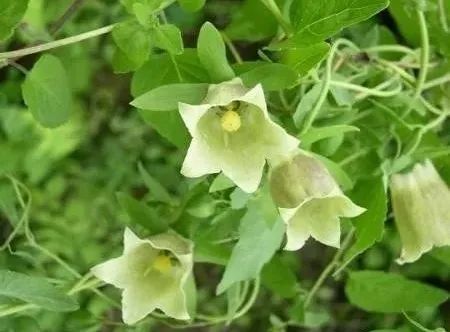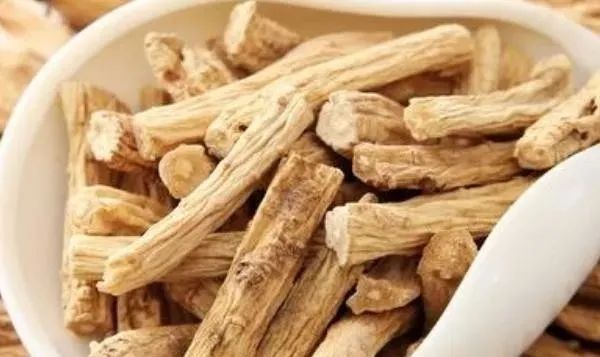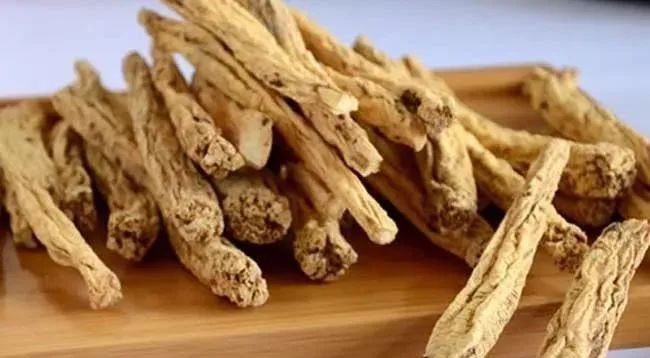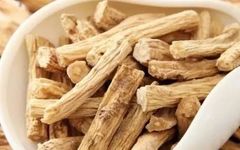
【Source Collection】
This product is the root of the perennial herbaceous plant Codonopsis pilosula (Dang Shen), also known as Codonopsis tangshen or Codonopsis lanceolata. It is harvested in autumn and dried. It is used raw.
【Main Components】
Mainly contains carbohydrates: inulin, fructose, glucose, and Codonopsis polysaccharides.
Glycosides: syringin, Codonopsis saponins I, II, III, IV.
Triterpenoid components: dandelion terpenoids, dandelion terpenoid ethyl acetate, etc.
Alkaloids: Codonopsis alkaloids, choline, etc.

【Functions and Indications】
Codonopsis has a sweet taste, is neutral in nature, and enters the spleen and lung meridians. Its functions include tonifying qi, generating fluids, and nourishing blood.
1. Tonifies qi, indicated for spleen qi deficiency and lung qi deficiency syndromes.
Compatible with: Astragalus (Huang Qi), Poria (Fu Ling), Dried Tangerine Peel (Chen Pi), Schisandra (Wu Wei Zi).
2. Tonifies qi and generates fluids, indicated for fluid deficiency syndromes.
Compatible with: Ophiopogon (Mai Dong), Schisandra (Wu Wei Zi).
3. Tonifies qi and nourishes blood, indicated for blood deficiency syndromes or qi and blood deficiency syndromes.
Compatible with: Astragalus (Huang Qi), Angelica (Dang Gui), Chuanxiong (Chuan Xiong), Rehmannia (Shu Di Huang), Prepared Fo-Ti (Zhi He Shou Wu).

【Pharmacological Effects】
1. Regulates gastrointestinal motility.
It has a bidirectional regulatory effect.
2. Anti-gastric ulcer.
Codonopsis polysaccharides are its functional components.
3. Enhances immunity.
Codonopsis and its polysaccharides.
4. Anti-stress.
Codonopsis extracts and their polysaccharides.
5. Anti-myocardial ischemia.
6. Promotes hematopoietic function.
7. Cardiotonic, anti-shock, regulates blood pressure.
8. Improves blood rheology.
9. Sedative, hypnotic, anti-convulsant.
10. Cognitive enhancement.
11. Antibacterial, anti-inflammatory, analgesic.
【Modern Applications】
1. Hematological diseases.
2. Digestive system diseases.
3. Chronic diseases with immune dysfunction.
4. Coronary heart disease.
5. Acute mountain sickness.
6. Hypotension.
【Dietary Therapy】
1. Codonopsis and Solomon’s Seal Porridge.
20g of Solomon’s Seal (Yu Zhu), 30g of Codonopsis (Dang Shen), 50g of rice. First, decoct Solomon’s Seal and Codonopsis to extract the juice, remove the residue, then add rice and an appropriate amount of water to cook porridge. Take twice daily, while hot.
Effect: Tonifies qi and nourishes yin. Indicated for fatigue and weakness due to both qi and yin deficiency, spontaneous sweating, palpitations, poor appetite, dry mouth, heat in the palms and soles, or night sweats, frequent dreams, etc. Discontinue use for colds or abdominal distension.
2. Codonopsis and Corn Tea.
30g of Codonopsis (Dang Shen), 100g of corn. Wash Codonopsis and corn separately, dry and crush Codonopsis, roast corn until cooked, then place both in a clay pot. Add 1000ml of water, soak for 1 hour, then boil for 20 minutes, let it settle, and pour into a thermos for drinking instead of tea.
Effect: Tonifies spleen and stomach, benefits qi and nourishes yin. Indicated for spleen and stomach deficiency, poor appetite, and dull pain in the stomach area.
3. Angelica and Codonopsis Stewed Chicken.
15g of Angelica (Dang Gui), 15g of Codonopsis (Dang Shen), 1 chicken, appropriate amounts of green onion, ginger, cooking wine, and salt. After slaughtering the chicken, remove feathers and entrails, wash clean, place Angelica and Codonopsis inside the chicken, then put the chicken in a clay pot, add green onion, ginger, cooking wine, salt, and water as needed, bring to a boil over high heat, then simmer on low heat until the chicken is tender. Serve by separating the meat and drinking the soup.
Effect: Nourishes blood and strengthens the body. Suitable for chronic hepatitis and various anemias due to liver and spleen blood deficiency.
4. Codonopsis and Jujube Rice.
10g of Codonopsis (Dang Shen), 250g of glutinous rice, 50g of sugar. Place Codonopsis and jujubes in a clay pot, soak in water, then boil for about 30 minutes, remove Codonopsis and jujubes, and reserve the medicinal liquid. Wash the glutinous rice, place it in a large porcelain bowl, add appropriate water, steam until cooked, then invert onto a plate, place Codonopsis and jujubes on top, and pour the medicinal liquid mixed with sugar over the jujube rice.
Effect: Strengthens the spleen and benefits qi. Indicated for physical weakness, fatigue, palpitations, insomnia, poor appetite, loose stools, and edema.
5. Codonopsis, Astragalus, and Fo-Ti Essence.
250g of Codonopsis (Dang Shen), 250g of Astragalus (Huang Qi), 200g of prepared Fo-Ti (Zhi He Shou Wu), 500g of sugar. Wash Codonopsis, Astragalus, and prepared Fo-Ti, soak in cold water, add appropriate water to boil, after boiling, switch to low heat, take the medicinal liquid every half hour, boil a total of 3 times; combine the three decoctions, remove the residue, and continue to simmer on low heat until it thickens to a paste.
6. Codonopsis and Goji Berry Wine.
15g of Codonopsis (Dang Shen), 15g of goji berries (Gou Qi), 500ml of rice wine. Wash Codonopsis and goji berries, dry and grind into coarse powder, place in a narrow-mouthed bottle, add rice wine, seal the bottle, shake once daily, and soak for more than 7 days. Take 15ml each time, twice daily.
Effect: Benefits qi and nourishes blood, calms the mind and spirit. Indicated for heart and spleen deficiency, palpitations, insomnia, frequent dreams, poor appetite, and fatigue.
7. Codonopsis and Astragalus Soup.
250g of Codonopsis (Dang Shen), 250g of Astragalus (Huang Qi), 500g of sugar. Wash Codonopsis and Astragalus, soak in cold water, add appropriate water to boil, take the medicinal liquid every half hour, boil a total of 3 times, then combine the decoctions. Simmer the combined liquid on low heat until it thickens, let it cool, add sugar to absorb the medicinal liquid, mix well, dry in the sun, crush, and store in a glass bottle.
Dosage: Dissolve in boiling water before taking, 10g each time, twice daily.
Effect: Tonifies lung and spleen qi. Suitable for symptoms of qi deficiency type palpitations, shortness of breath, poor appetite, organ prolapse, edema, wheezing, and dizziness.
The above content is extracted from the internet, with gratitude to the original author!



